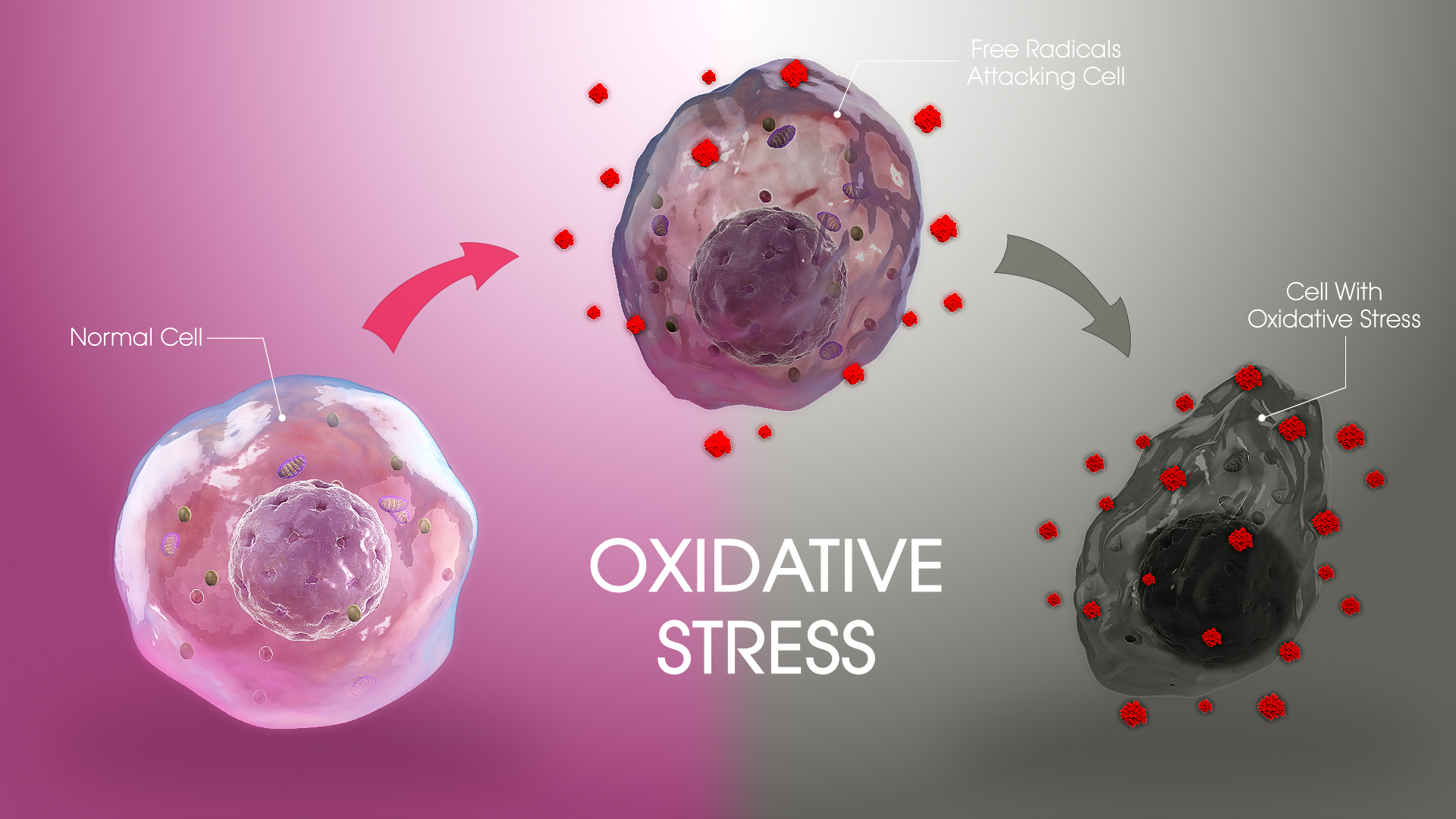When there is an imbalance between free radicals and the ability of the body to neutralize their harmful or toxic effects through production of antioxidants, it leads to oxidative stress.

Oxygen carrying molecules with an uneven number of electrons are called free radicals. This uneven number allows them to react with other molecules and cause large chain chemical reactions. Antioxidants are molecules that can donate electrons to a free radical without making themselves unstable, and at the same time, cause the free radical to stabilize and become less reactive. The body’s cells produce free radicals during the metabolic processes. On the other hand, cells also produce antioxidants that neutralise the effects of these free radicals, and the body is generally able to manage a balance between both. An imbalance between oxidants and antioxidants is the basis for oxidative stress.
Effects of oxidative stress
The effects of oxidative stress are not always harmful. Oxidative stress from physical activity such as exercise is beneficial as the free radicals formed during physical activity regulate tissue growth and stimulate the production of antioxidants. Mild oxidative stress also protects the body from diseases and infections. Long term oxidative stress, on the other hand, cause damage to the body’s cells, DNA and proteins. This not only contributes to aging, it also is a cause for the development of a large number of diseases in the body over a period of time. Some of these conditions or diseases are:
Risk factors for oxidative stress
The various factors that contribute to a person’s oxidative stress are :
- Alcohol consumption
- Obesity
- Smoking and use of other tobacco products
- Diets high in fats and sugar
- Processed foods
- Pollution
- Certain medicines
- Exposure to pesticides and industrial chemicals
- Exposure to radiation
Managing and preventing oxidative stress
To completely avoid oxidative stress may not be possible. But the effects of oxidative stress on the body can usually be minimised by increasing the level of antioxidants and decreasing the formation of free radicals in the body. Some of the lifestyle changes that commonly help in this are :
- Eating a diet that is balanced and rich in both fruits and vegetables
- Regular exercise
- Decreasing alcohol intake
- No smoking
- Using chemicals cautiously
- Wearing sunscreen
- Reducing stress and getting plenty of sleep
- Maintaining a healthy body weight and avoiding overeating
- Reducing the consumption of foods that are processed and are high in fats and sugar
- Reducing exposure to pollution
To keep the balance between the formation of free radicals and antioxidants, lifestyle choices regarding diet, environment, and exercise are important as they prevent damage and disease.
Disclaimer: The information in no way constitutes, or should be construed as medical advice. Nor is the above article an endorsement of any research findings discussed in the article an endorsement for any of the source publications.
Sources-
- https://www.news-medical.net/health/What-is-Oxidative-Stress.aspx
- https://www.healthline.com/health/oxidative-stress#takeaway
- https://www.medicalnewstoday.com/articles/324863.php









